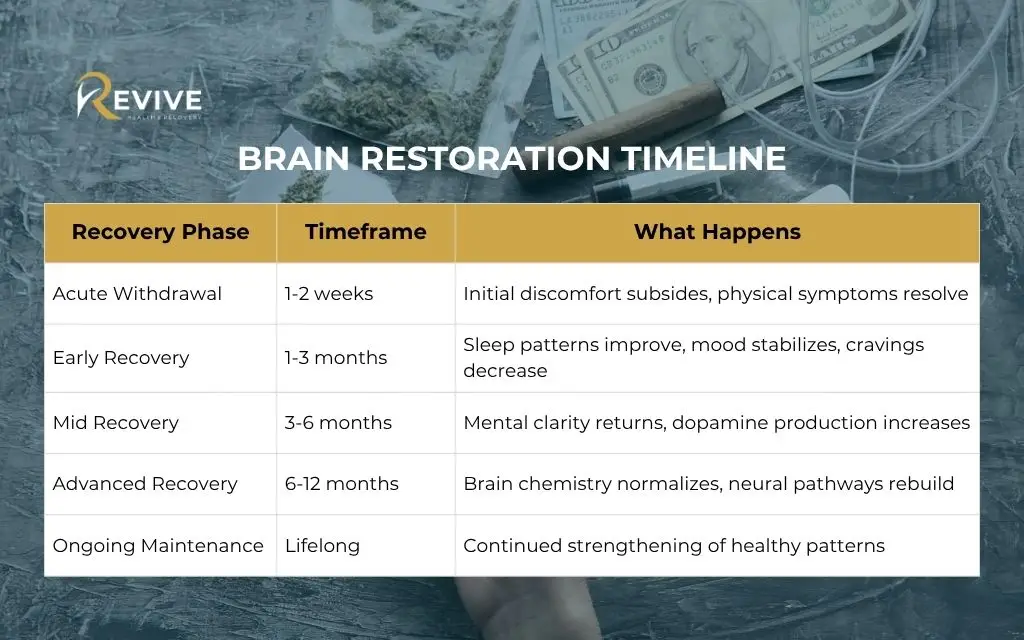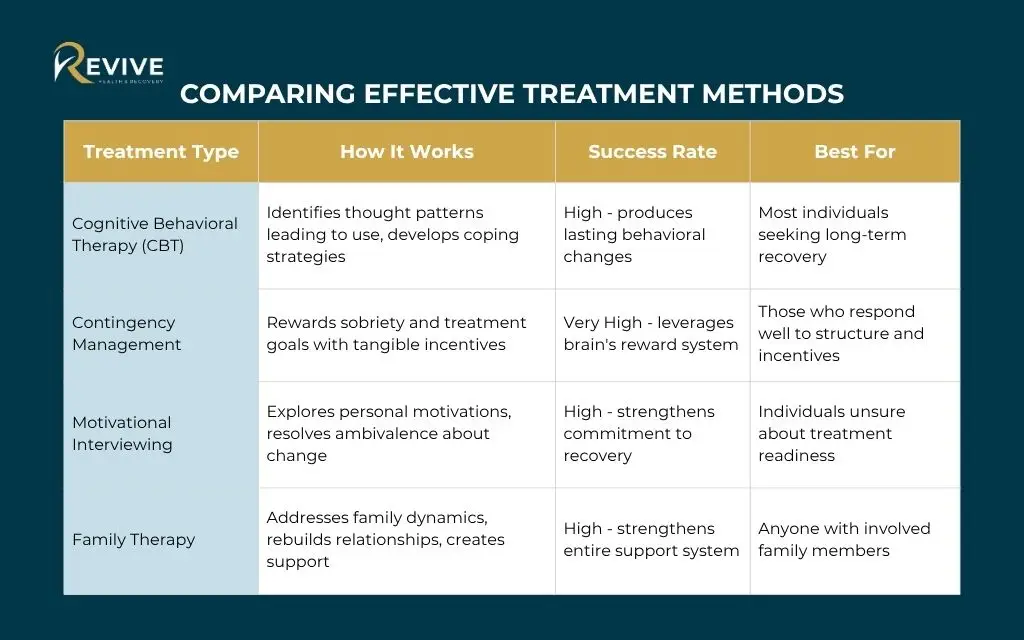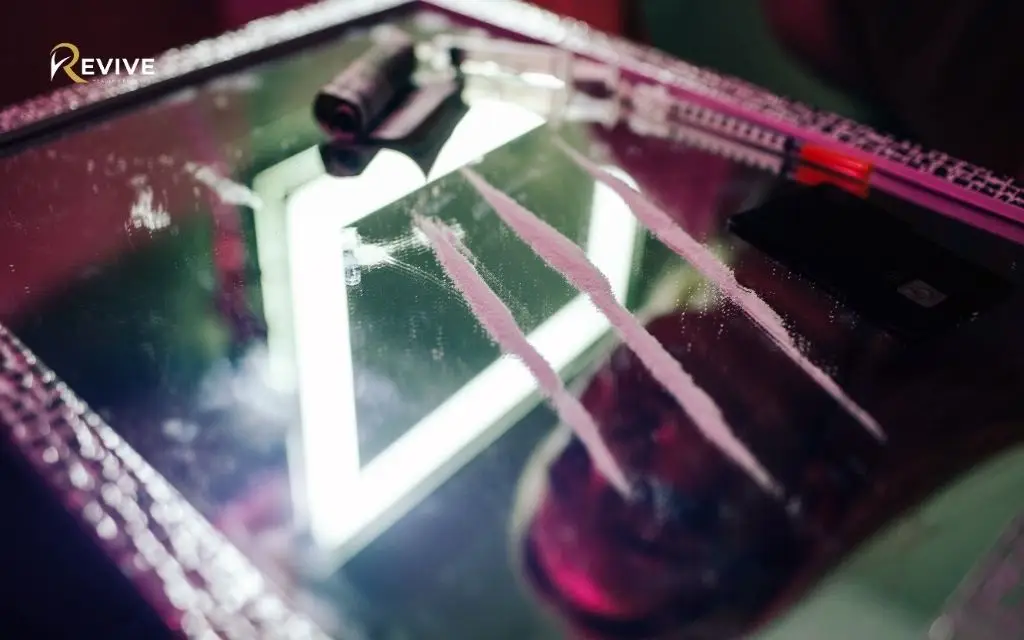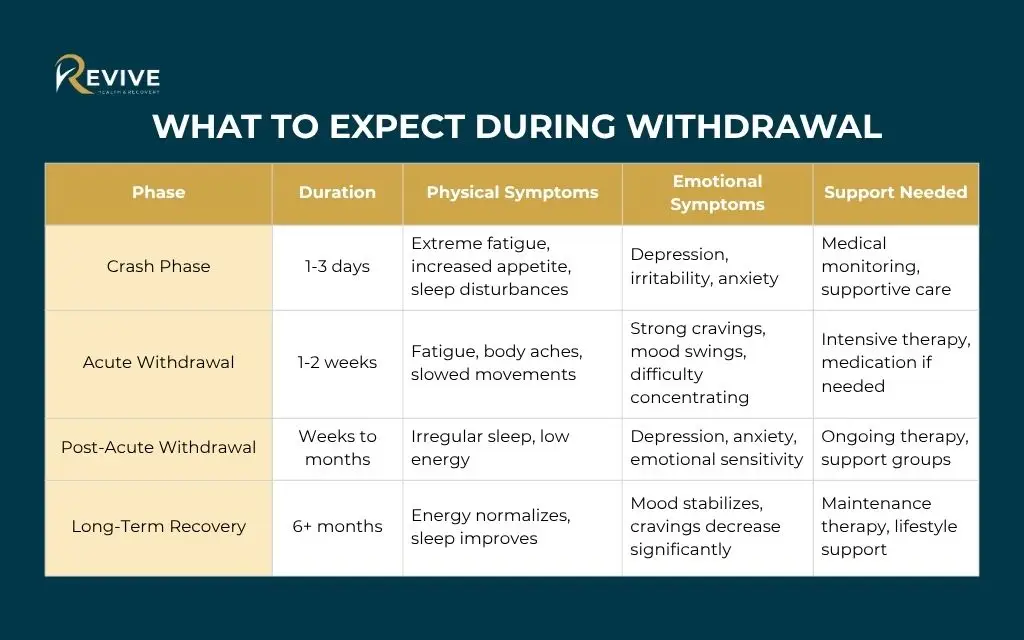Cocaine addiction affects over 1.5 million Americans each year, and Colorado ranks seventh in the nation for substance use challenges. If you’re struggling with cocaine dependence, know that you’re not facing this alone. Even better, recovery is absolutely within your reach. Research reveals that 99.2% of individuals can achieve long-term remission from cocaine addiction when they receive proper support and treatment from Treating Two Challenges.
This guide offers evidence-based strategies, local resources, and actionable steps overcoming cocaine addiction designed specifically for Colorado residents, especially those in the Denver area. Whether you need outpatient treatment, dual diagnosis support, or family resources, we’ll walk you through proven recovery methods that respect your lifestyle while prioritizing your healing. Recovery from stimulant addiction is not just possible. It’s your right, and it begins with taking one informed step forward today.
Understanding cocaine addiction in Colorado
The neuroscience behind cocaine dependence
Cocaine hijacks your brain’s dopamine system in powerful ways. When you use cocaine, it floods your brain with dopamine, creating intense pleasure. Your brain remembers this feeling and begins to crave it. Over time, your brain’s natural ability to produce dopamine diminishes. This creates a cycle where you need cocaine just to feel normal.
Willpower alone cannot overcome cocaine addiction because the changes happen at a neurological level. Your brain’s reward pathways have been rewired. The good news is that your brain possesses remarkable healing abilities through neuroplasticity. With proper treatment, your brain can restore its natural dopamine function.
The brain restoration timeline varies for each person. Acute withdrawal typically resolves within two weeks. However, full brain healing can take six to twelve months. During this time, your neural pathways gradually rebuild. You’ll notice improvements in mood, energy, and mental clarity as your brain chemistry rebalances.

Colorado-specific addiction challenges
Colorado’s high altitude creates unique challenges for those overcoming cocaine addiction. The reduced oxygen levels at elevation can intensify cocaine’s effects on your cardiovascular system. This means recovery requires extra medical attention to ensure your safety during withdrawal and early sobriety.
The Denver metro area presents distinct urban stressors. Fast-paced professional environments, social pressures, and easy access to substances create ongoing triggers. Many professionals develop high-functioning addiction patterns, maintaining careers while struggling privately with cocaine dependence dual diagnosis.
The professional culture in Colorado often normalizes certain substance use patterns. This makes it harder to recognize when use becomes dependence. Many people delay seeking help because they’re still meeting work obligations. However, early intervention leads to better outcomes and prevents serious health consequences.
Dual diagnosis prevalence in Colorado
Colorado shows significantly higher rates of co-occurring mental health conditions with substance use disorders. Depression and anxiety frequently accompany cocaine addiction. The stimulant effects of cocaine temporarily mask these underlying conditions, creating a dangerous cycle of self-medication.
Many individuals with ADHD turn to cocaine as an unintentional form of self-medication. The stimulant properties provide temporary focus and energy. However, this pattern quickly leads to dependence and worsens both the ADHD symptoms and overall mental health.
Research indicates that treating both conditions simultaneously produces the best outcomes. Dual diagnosis treatment addresses the root causes of addiction while managing mental health symptoms. This integrated approach prevents relapse and supports lasting recovery.
Proven strategies for overcoming cocaine addiction
Evidence-based treatment approaches

| Treatment Type | How It Works | Success Rate | Best For |
| Cognitive Behavioral Therapy (CBT) | Identifies thought patterns leading to use, develops coping strategies | High – produces lasting behavioral changes | Most individuals seeking long-term recovery |
| Contingency Management | Rewards sobriety and treatment goals with tangible incentives | Very High – leverages brain’s reward system | Those who respond well to structure and incentives |
| Motivational Interviewing | Explores personal motivations, resolves ambivalence about change | High – strengthens commitment to recovery | Individuals unsure about treatment readiness |
| Family Therapy | Addresses family dynamics, rebuilds relationships, creates support | High – strengthens entire support system | Anyone with involved family members |
These evidence-based approaches form the foundation of effective treatment. At Revive Health Recovery, we combine multiple methods tailored to your specific needs and circumstances.
Medication-assisted treatment options
Disulfiram, traditionally used for alcohol dependence, shows promise for cocaine relapse prevention. This medication helps reduce cravings and makes cocaine use less rewarding. When combined with counseling, it significantly improves recovery outcomes.
For those with co-occurring depression or anxiety, antidepressants play a crucial role in dual diagnosis treatment. Addressing underlying mental health conditions removes a major relapse trigger. Your psychiatrist will work with you to find the right medication and dosage.
Researchers continue developing new pharmacological treatments for cocaine addiction. While no FDA-approved medication specifically treats cocaine dependence yet, several promising options are in clinical trials. Your treatment team stays informed about emerging treatments that might benefit your recovery.
Holistic recovery methods
Mindfulness and meditation practices help you manage cravings and emotional discomfort. These techniques teach you to observe thoughts and feelings without reacting to them. Regular practice strengthens your ability to resist urges and maintain sobriety.
Exercise therapy provides natural mood elevation and stress relief. Physical activity helps restore your brain’s dopamine function naturally. Colorado’s outdoor activities offer perfect opportunities for therapeutic exercise. Hiking, biking, and skiing become part of your recovery toolkit.
Nutritional rehabilitation supports your body’s healing process. Cocaine use depletes essential vitamins and minerals. Working with a nutritionist helps you restore physical health and improve mental clarity. Proper nutrition also stabilizes mood and reduces cravings.
Sleep hygiene restoration is critical for recovery from stimulant addiction. Cocaine disrupts natural sleep patterns, and poor sleep increases relapse risk. Your treatment team will help you establish healthy sleep routines that support long-term sobriety.
Colorado recovery resources and support systems
Outpatient treatment programs in Denver
Intensive Outpatient Programs (IOP) offer comprehensive treatment while you maintain work and family responsibilities. You attend therapy sessions several times per week but live at home. This flexibility makes treatment accessible for professionals and parents who cannot take extended time away.
Partial Hospitalization Programs (PHP) provide more intensive support than IOP. You receive treatment during the day and return home in the evenings. This level of care works well for those who need more structure but don’t require 24-hour supervision.
Revive Health Recovery specializes in flexible scheduling for working professionals. We understand that your career matters and that financial stability supports recovery. Our programs allow you to receive quality treatment without sacrificing your livelihood.
Support groups and community resources
Cocaine Anonymous meetings throughout Colorado provide peer support from others who understand your struggles. These free meetings offer a judgment-free space to share experiences and gain strength from others in recovery. The fellowship component proves invaluable for long-term success.
SMART Recovery offers an evidence-based alternative to traditional 12-step programs. Local chapters meet throughout the Denver metro area. This approach focuses on self-empowerment and practical tools for managing cravings and triggers.
Online support communities connect you with others in recovery nationwide. These platforms provide 24/7 support when you need encouragement. Virtual meetings work well for those with scheduling challenges or who prefer anonymity.
Family support programs help your loved ones understand addiction and develop healthy boundaries. When your family receives support, your entire recovery system strengthens. Revive Health Recovery offers dedicated family services through our family liaison, who stays involved throughout your program.

Insurance and financial assistance
Colorado Medicaid covers addiction treatment services, including outpatient programs. If you qualify for Medicaid, you can access comprehensive treatment at little to no cost. Our admissions team helps you navigate the application process.
Private insurance companies are required to cover addiction treatment under mental health parity laws. Most plans cover both individual therapy and group counseling. We verify your benefits and explain your coverage before you begin treatment.
Many programs offer sliding scale fees based on income. This makes treatment accessible regardless of your financial situation. Don’t let cost concerns prevent you from seeking help. Contact Revive Health Recovery at (303) 268-4655 to discuss payment options tailored to your circumstances.
Employee Assistance Programs (EAP) through your workplace may cover initial assessment and referral services. Some EAPs also provide short-term counseling. Check with your HR department about available benefits.
Creating your personal recovery plan
Assessment and treatment matching
Self-assessment tools help you understand the severity of your addiction. Honest evaluation of your cocaine use patterns, consequences, and co-occurring issues provides clarity. However, professional assessment remains essential for accurate diagnosis and treatment planning.
Professional evaluation by addiction specialists determines the appropriate level of care. They assess your medical history, mental health, social support, and previous treatment attempts. This comprehensive evaluation ensures you receive treatment matched to your specific needs.
Matching treatment intensity to your need level optimizes outcomes. Some people succeed in outpatient treatment, while others need more intensive support. The right match depends on factors like severity of dependence, co-occurring conditions, and environmental stability.
Building your recovery team
Addiction counselors and therapists guide you through evidence-based treatments. At Revive Health Recovery, our licensed professionals bring both expertise and personal understanding to their work. Many team members have overcome similar challenges themselves, creating deep empathy for your journey.
Medical professionals address physical health concerns and manage medications for dual diagnosis treatment. Your doctor monitors your health throughout recovery and adjusts treatment as needed. This medical oversight ensures safe, effective care.
Peer support specialists offer unique insight from their own recovery experience. They provide hope, practical advice, and accountability. This peer connection reminds you that recovery is possible and you’re not alone.
Family involvement strengthens your support network. Your loved ones learn how to encourage your recovery without enabling addiction. Our family liaison at Revive Health Recovery keeps your family informed and engaged throughout treatment.
Relapse prevention strategies
Identifying personal triggers is the first step in relapse prevention. Common triggers include stress, certain people or places, and emotional states. Through treatment, you’ll create a detailed map of your specific triggers and high-risk situations.
Developing coping skill toolkits gives you alternatives to cocaine use. Your toolkit might include calling your sponsor, practicing mindfulness, exercising, or using relaxation techniques. The more skills you have, the better prepared you are for challenges.
Emergency response planning prepares you for moments of intense craving. You’ll know exactly what to do and who to call when urges strike. This plan removes hesitation and helps you act quickly to maintain sobriety.
Long-term maintenance strategies focus on building a fulfilling life in recovery. As you establish new routines, relationships, and goals, cocaine loses its appeal. Recovery becomes about what you’re gaining, not what you’re giving up.
Navigating withdrawal and early recovery
Cocaine withdrawal timeline and symptoms

| Phase | Duration | Physical Symptoms | Emotional Symptoms | Support Needed |
| Crash Phase | 1-3 days | Extreme fatigue, increased appetite, sleep disturbances | Depression, irritability, anxiety | Medical monitoring, supportive care |
| Acute Withdrawal | 1-2 weeks | Fatigue, body aches, slowed movements | Strong cravings, mood swings, difficulty concentrating | Intensive therapy, medication if needed |
| Post-Acute Withdrawal | Weeks to months | Irregular sleep, low energy | Depression, anxiety, emotional sensitivity | Ongoing therapy, support groups |
| Long-Term Recovery | 6+ months | Energy normalizes, sleep improves | Mood stabilizes, cravings decrease significantly | Maintenance therapy, lifestyle support |
While cocaine withdrawal is not medically dangerous like alcohol or benzodiazepine withdrawal, it’s deeply uncomfortable. Understanding this timeline helps you stay patient with the process and recognize that symptoms are temporary.
Managing cravings and mental health
Craving management techniques include urge surfing, distraction, and reaching out for support. Cravings peak and then subside naturally, usually within 15 to 30 minutes. Learning to ride out cravings without acting on them builds confidence and strength.
Depression often emerges during early recovery as your brain adjusts to functioning without cocaine. This is a normal part of the healing process. Treatment for depression, whether through therapy, medication, or both, prevents relapse and supports emotional stability.
Anxiety frequently accompanies withdrawal and early recovery. Your nervous system is recalibrating after prolonged stimulant use. Therapy teaches you healthy ways to manage anxiety without substances. Over time, your natural stress response improves.
Cognitive function recovery happens gradually. You may notice improved memory, concentration, and decision-making ability as your brain heals. Most people see significant improvements within the first few months of sobriety.
Long-term recovery success in Colorado
Lifestyle modifications for sustained recovery
Career and professional considerations change as you prioritize recovery. You may need to set new boundaries at work or address job-related stressors. Some people change careers entirely to support their sobriety. Your recovery must come first, as it forms the foundation for all other success.
Relationship rebuilding takes time and effort. Trust damaged by addiction doesn’t repair overnight. Through family therapy and consistent sobriety, you can heal relationships with loved ones. Some relationships may not survive, and that’s part of the recovery process.
Financial recovery planning addresses debt and rebuilding stability. Addiction often creates financial problems. Working with a financial counselor or developing a budget helps you regain control. As you achieve financial stability, you reduce stress and build confidence.
Health and wellness integration makes recovery a lifestyle, not just abstinence from cocaine. Regular exercise, good nutrition, adequate sleep, and stress management become non-negotiable parts of your routine. These healthy habits protect your sobriety and improve quality of life.
Leveraging Colorado’s recovery advantages
Outdoor therapy opportunities abound in Colorado. Hiking, skiing, rock climbing, and other activities provide natural stress relief and mood elevation. Many treatment programs incorporate outdoor experiences into their approach. Nature becomes a powerful ally in your recovery.
Progressive healthcare policies in Colorado support comprehensive addiction treatment. The state has implemented legislation that improves access to care and protects individuals in recovery. These policies make Colorado an ideal place to build lasting sobriety.
Strong recovery community networks throughout the state provide ongoing support. You’ll find meetings, sober social events, and recovery-focused activities in most Colorado communities. This robust network helps you build a sober social life.
Employment protection laws prevent discrimination based on past addiction treatment. Colorado law protects your rights as you pursue recovery. You don’t have to fear losing your job because you sought help for cocaine addiction.
FAQs overcoming cocaine addiction
How long does it take to overcome cocaine addiction?
Recovery timelines vary for each person. Acute withdrawal resolves within two weeks for most people. Full brain healing takes six to twelve months. However, recovery is a lifelong journey supported by evidence-based treatment. Revive Health Recovery provides comprehensive outpatient programs that support you through every phase of healing.
Can I recover from cocaine addiction without inpatient treatment?
Yes, many people successfully recover through outpatient programs. Intensive Outpatient Programs and Partial Hospitalization Programs offer comprehensive treatment while you maintain work and family responsibilities. Revive Health Recovery specializes in flexible outpatient care designed for working professionals in the Denver area.
What makes Colorado different for addiction recovery?
Colorado offers progressive mental health legislation, high-quality dual diagnosis treatment, extensive outdoor therapy opportunities, and strong insurance coverage for addiction services. Revive Health Recovery leverages these advantages while providing evidence-based care tailored to Colorado residents’ unique needs.
How does dual diagnosis treatment work for cocaine addiction?
Dual diagnosis treatment addresses both substance use and co-occurring mental health conditions simultaneously. This integrated approach significantly improves outcomes by treating underlying depression, anxiety, or trauma. Revive Health Recovery specializes in dual diagnosis care, ensuring comprehensive treatment for all aspects of your health.
What should I look for in a Colorado addiction treatment center?
Seek programs offering evidence-based treatments, dual diagnosis capability, flexible scheduling, insurance acceptance, and licensed addiction professionals. Ensure they provide ongoing support and relapse prevention planning. Revive Health Recovery meets all these criteria and brings deep expertise in treating cocaine dependence dual diagnosis.
Start your recovery journey with Revive Health Recovery
Recovery from cocaine addiction is not just possible. It’s your path to reclaiming your life, relationships, and future. At Revive Health Recovery, we understand the unique challenges facing Colorado residents struggling with substance use disorders, particularly in the Denver metro area.
Our comprehensive outpatient programs combine evidence-based treatments with compassionate, individualized care. As one of Colorado’s leading dual diagnosis treatment centers, we specialize in addressing both addiction and co-occurring mental health conditions simultaneously.
Our Denver Location: 1427 S Federal Blvd, Denver, CO 80219
What sets us apart:
Our team includes experienced professionals in Denver who have overcome similar challenges themselves, bringing deep empathy to their work. We offer specialized dual diagnosis expertise with flexible scheduling designed for working professionals. Our evidence-based treatment protocols include Cognitive Behavioral Therapy, Dialectical Behavior Therapy, Motivational Interviewing, and Trauma-Focused Cognitive Behavioral Therapy.
We prioritize teaching essential life skills that help you establish a strong foundation for recovery. Our program offers guidance in securing meaningful employment and achieving financial independence, which are crucial for long-term success. We assist with money management, life conflict resolution, and other vital skills tailored to your specific needs.
We recognize the important role of family in the recovery process. Our dedicated family liaison stays involved throughout your entire program, keeping your family informed and engaged at every step. With strong family support, you’re more likely to achieve lasting wellness.
Conclusion
Overcoming cocaine addiction requires courage, commitment, and the right support system. You’ve already taken the most important step by seeking information and resources. The journey ahead, while challenging, leads to freedom, health, and the life you deserve.
Colorado offers exceptional recovery resources, and with proper treatment, the vast majority of individuals achieve successful long-term recovery. Don’t let another day pass feeling trapped by addiction. Hope and healing are within reach right now.
Take action today:
- Call us anytime: (303) 268-4655 (Available 24/7)
- Email: contact@revivehealthrecovery.com
- Visit: 1427 S Federal Blvd, Denver, CO 80219
Your recovery journey starts with a single phone call. Contact Revive Health Recovery today to learn about our outpatient treatment programs, insurance options, and how we can support you in overcoming cocaine addiction while maintaining your life responsibilities. Recovery is not just possible. It’s waiting for you to claim it.



